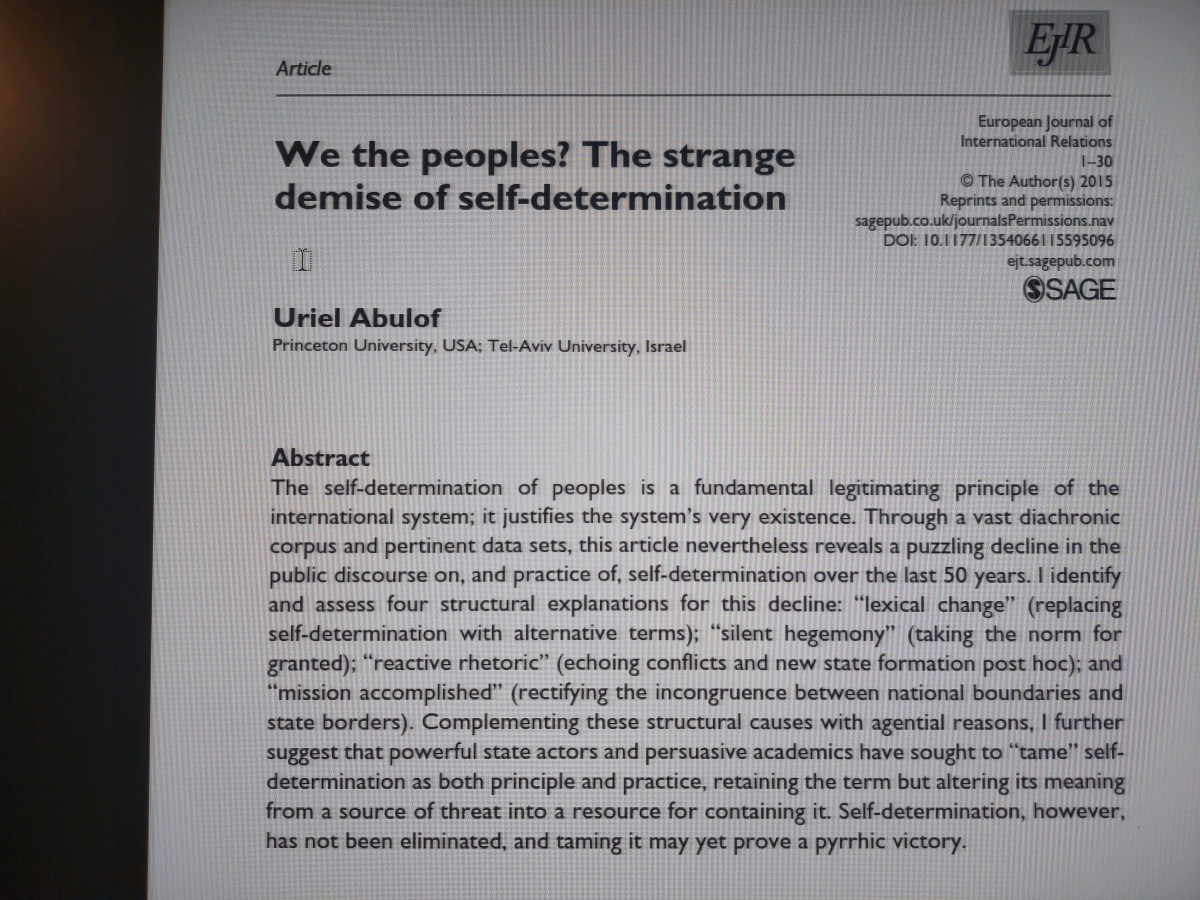

Most ebook files are in PDF format, so you can easily read them using various software such as Foxit Reader or directly on the Google Chrome browser.
Some ebook files are released by publishers in other formats such as .awz, .mobi, .epub, .fb2, etc. You may need to install specific software to read these formats on mobile/PC, such as Calibre.
Please read the tutorial at this link: https://ebookbell.com/faq
We offer FREE conversion to the popular formats you request; however, this may take some time. Therefore, right after payment, please email us, and we will try to provide the service as quickly as possible.
For some exceptional file formats or broken links (if any), please refrain from opening any disputes. Instead, email us first, and we will try to assist within a maximum of 6 hours.
EbookBell Team

5.0
68 reviewsThe self-determination of peoples is a fundamental legitimating principle of theinternational system; it justifies the system’s very existence. Through a vast diachroniccorpus and pertinent data sets, this article nevertheless reveals a puzzling decline in the public discourse on, and practice of, self-determination over the last 50 years. I identify and assess four structural explanations for this decline: “lexical change” (replacing self-determination with alternative terms); “silent hegemony” (taking the norm for granted); “reactive rhetoric” (echoing conflicts and new state formation post hoc); and “mission accomplished” (rectifying the incongruence between national boundaries and state borders). Complementing these structural causes with agential reasons, I further suggest that powerful state actors and persuasive academics have sought to “tame” selfdetermination as both principle and practice, retaining the term but altering its meaning from a source of threat into a resource for containing it. Self-determination, however, has not been eliminated, and taming it may yet prove a pyrrhic victory.